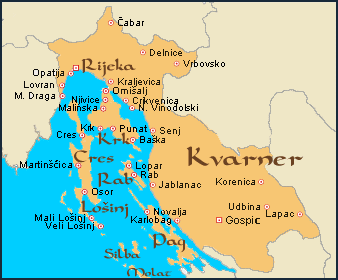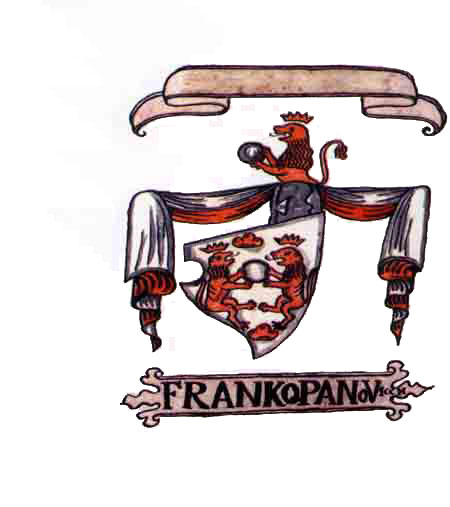The first known settlers of the island were the Illyrian tribes of the Japods and Liburnians, followed by the Greeks in the times when Krk belonged to the Electride, i.e. Apsirtide islands, today known as the Kvarner islands.
The Romans gained full control by the 9th century A.D.
Meanwhile, the Croats began settling the island as early as the 6th century, and eventually became the island’s major population. Christianity reached the island early. Hence, a bishopric was established in the 5th century A.D. with the town of Krk as its seat and Andrew, the first known bishop (680 A.D).
The Croats settled the island in family groups that lived within castles scattered throughout the island, which resulted in a variety of Chakavian dialects. The four main dialects are known as the “cha”, “che”, “cho” and “tza” varieties.
- Towards the end of the 12th century, a powerful local family comes on the scene: the Counts of Krk, later known as the Frankopans.
This was the only family coming from an Adriatic island that developed and prospered into one of the most powerful in Europe. Their origins can be traced to Vrbnik, from which they spread their power and territories to the mainland: Trsat, Bakar, Kraljevica, Crikvenica, Novi Vinodolski, Otocac, Brinje, Modrus, etc. At the height of their power they possessed territory equal to half of today’s Croatia.
Some counts of the Frankopan family became Croatian viceroys (“ban”) with great political influence. The first Frankopan mentioned was Dujam I (1118 A.D.) and the last Fran Krsto who was executed in 1671 by the orders of the emperor and king Leopold Habsburg.
The island came into Venetian possession in 1480, as the last of the Adriatic islands to fall under their reign. Count Ivan Frankopan was deceived and taken prisoner.
After the fall of the Frankopan family in the 15th century, Krk witnessess many different reigns: the Venetians, French, Austro – Hungarians, Italy, Germany and Yugoslavia. Finally, after five centuries, Krk again becomes an integral part of the Croatian corpus. The Republic of Croatia was proclaimed in 1991

